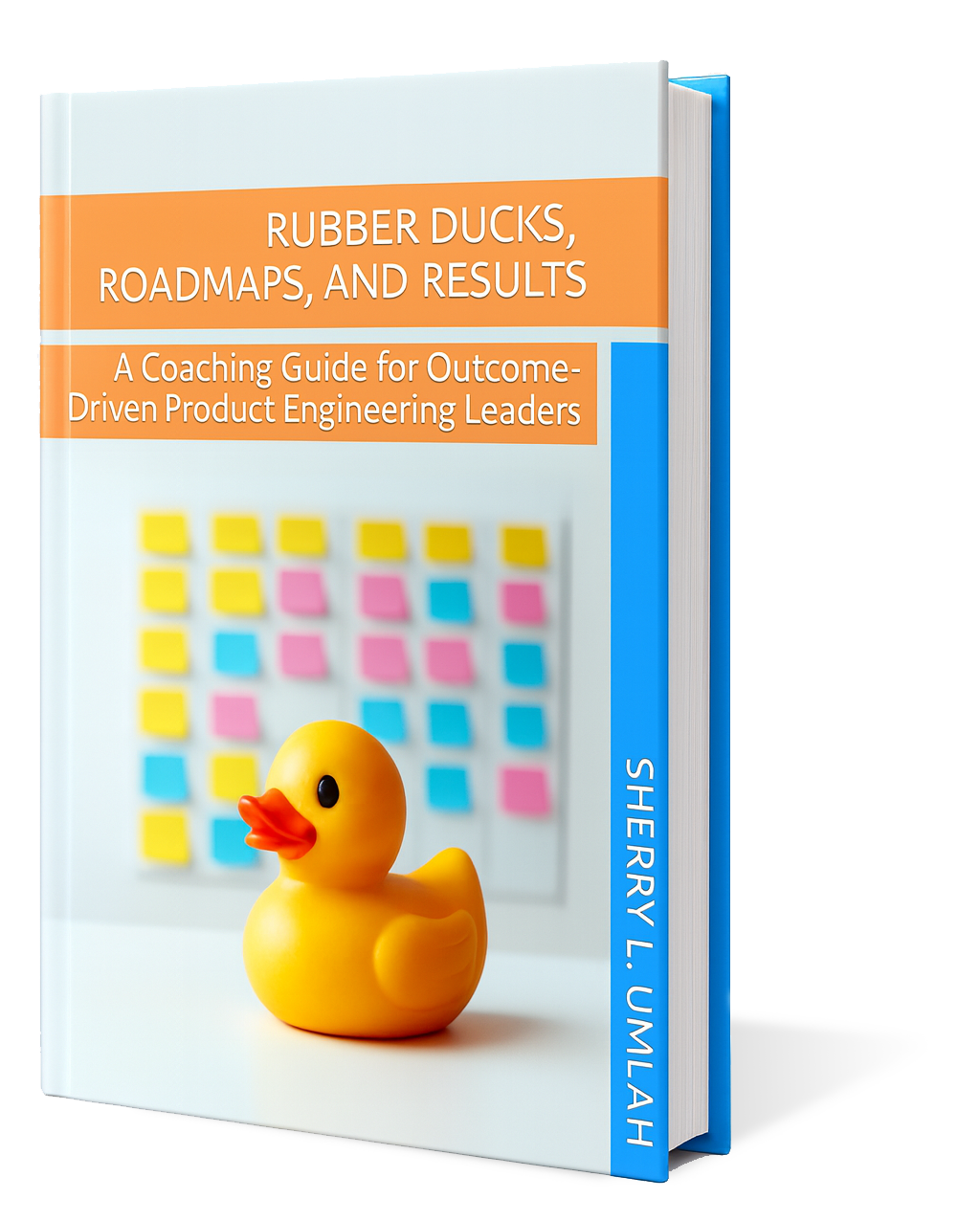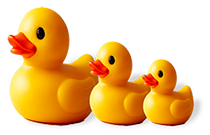
Sherry L. Umlah
Engineering leader, coach, and author
When I first became a manager, I went searching for a playbook—something clear and prescriptive. Surely, I thought, management was just another problem I could solve, like math, or code. If I followed the right rules, processes, and frameworks, I’d be golden.
But it didn’t take long to realize that no rulebook could account for all the variables and grey areas: different people, personalities, cultures, genders, generations, industries, company sizes, or power structures. No two coaching conversations are ever the same. No two cross-functional conflicts follow the same path. And no amount of frameworks will prepare you for the human complexity of leading real people in real, unpredictable situations.
That’s when I discovered the deeper power of rubber ducking. Sure, it started as a silly engineering trick—talking through your problem out loud, often to a literal rubber duck, to debug your own thinking. But the truth is: the best leaders rubber duck constantly. With themselves. With their teams. With their peers. With their mentors. It’s not about having the right answers. It’s about thinking better—more reflectively, more inclusively, more humanely.
And that’s why this book exists. Because management isn’t about following someone else’s formula—it’s about creating your own and seeking and validating feedback.Read more
About the Author
I've worked in software since 1996—starting as a self-taught web developer. Over the years, I’ve held positions like Internet Marketing Specialist, Software Engineer, Director of Programming & Analysis, Wellness Coach, Adjunct Instructor, Engineering Manager, Entrepreneur, and Leadership Coach. I’ve worked in agencies, remote-first SaaS companies, startups, and educational technology. I've led API teams, core product teams, success teams, and product-focused squads. And I’ve managed people across billing systems, integrations, and customer experience. I’ve hired and coached Engineers of all levels, Contractors, Students, Apprentices, and other Engineering Managers across the U.S. and globally.
I’ve realized that knowing yourself deeply—your values, your style, your strengths—is what makes you credible. It’s not the absence of self-doubt, but the presence of clarity and knowing your true self and leading with that knowledge.
That’s why this book leans heavily on coaching-style leadership. Research consistently shows that coaching leadership builds intrinsic motivation, independence, and growth mindset—far more than command-and-control management ever will. Coaching builds confidence from the inside out. And it’s the best gift you can offer your team—or yourself.

